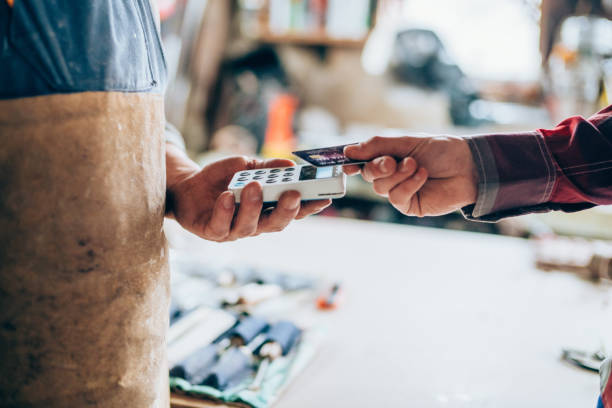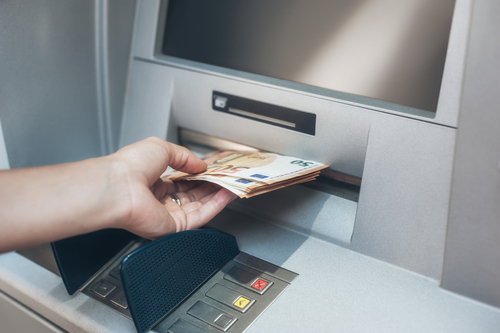You are now leaving the Bright website and entering a third-party website. Bright has no control over the content, products, or services offered, nor the security or privacy of information transmitted to others via their website. We recommend that you review the privacy policy of the site you are entering. Bright does not guarantee or endorse the products, information, or recommendations provided on any third-party website.
Accessing cash from a credit builder card can be a topic of concern for individuals aiming to build or rebuild their credit. While these cards are primarily designed to boost your creditworthiness, there are considerations and alternatives when it comes to withdrawing money.
In this guide, we'll explore the possibilities and provide insights into whether you can withdraw money from a credit builder credit card.
But before we get into the topic, it is recommended to first read about whether can you get a loan with no credit check in detail by Bright Money!
Can You Withdraw Cash from a Credit Builder Card?
Yes, you can withdraw cash from a credit builder card at an ATM, similar to how you would with a traditional credit card. However, it's essential to understand the implications and consider alternative options before resorting to cash withdrawals.
1. High Fees and Interest Rates
Cash advances from credit builder cards typically come with hefty fees and higher interest rates compared to regular credit card transactions. These fees can include a flat cash advance fee, which is a percentage of the amount withdrawn, and immediate interest charges that start accruing as soon as you take out the cash. The combination of fees and interest can make cash advances an expensive way to access funds.
2. Impact on Credit Score
Cash advances can impact your credit score in several ways. Firstly, they increase your credit card balance, potentially pushing your credit utilization ratio higher. Credit utilization is a vital factor in credit score calculations, and a high ratio can negatively affect your score. Secondly, the credit bureaus may view frequent cash advances as a sign of financial distress, which can further lower your creditworthiness.
3. Priority for Credit Building
The primary purpose of a credit builder card is to establish or improve your credit history. To achieve this goal effectively, it's advisable to focus on making on-time payments and keeping your credit utilization low. Responsible credit use, such as paying your credit card bill in full each month and not carrying a high balance, can help raise your credit score over time.
4. Emergency Use
While it's generally discouraged to use a credit builder card for cash advances, it can provide a safety net for unexpected emergencies when you have no other options. In such cases, be prepared for the associated fees and interest charges and aim to pay off the cash advance as soon as possible to mitigate their impact.
What is the Purpose of Credit Builder Cards?
Approximately 30% of credit builder cards on the market offer cash advance options, but these are typically only available to cardholders with a certain credit score or payment history. These specialized financial tools are designed to serve various purposes like:
Establishing or Rebuilding Credit
The main goal of credit builder credit cards is to help people create or repair their credit records. A low credit score may be a big barrier for many people, especially for those who are young and just starting out financially or those who have had credit issues in the past. Your capacity to borrow loans, receive advantageous interest rates, rent an apartment, and even be hired for some jobs can all be impacted by your credit score.
Credit builder cards offer a lifeline to these individuals. They function as a stepping stone towards building credit. Here's how it works:
No Credit Check Required
One of the significant advantages of credit builder cards is that they typically do not require a credit check during the application process. This is in stark contrast to traditional credit cards, which often require a good credit score for approval. As a result, credit builder cards are accessible to those with limited or damaged credit histories.
Responsible Usage Builds Credit
Once you obtain a credit builder card, the key to achieving the purpose is responsible usage. When you use the card to make purchases and then make timely payments on your account, this positive financial behavior is reported to the major credit bureaus. Over time, a pattern of responsible credit card usage helps boost your credit score.
Gradual Credit Improvement
Credit builder credit cards are not a quick fix. They are a long-term strategy for improving credit. Your credit score will increase as you consistently demonstrate good financial habits. This slow but steady progress can open doors to better financial opportunities down the road.
Looking to build credit? Make a smart move with Bright's Credit Builder Loan at 0% APR

What are the Alternatives to Credit Builder Card for Cash Access?
1. Secured Loans
How it works: Secured loans are financial products offered by banks or lending institutions that require collateral to secure the loan. In the context of credit builder cards, you can use the deposit you make when opening the card as collateral for a secured loan.
Advantages
- Access to Cash: Secured loans allow you to access cash by leveraging the deposit you've placed with your credit builder card.
- Build Credit: Repaying a secured loan responsibly can positively impact your credit history and score.
- Lower Interest Rates: Secured loans often come with lower interest rates when it's compared to unsecured loans or credit cards since the collateral mitigates the lender's risk.
Considerations:
- Risk to Collateral: If you fail to repay the secured loan, the lender has the power seize the collateral (in this case, the deposit), which could affect your ability to use the credit builder card.
- Interest and Fees: While interest rates may be lower, there may still be fees associated with secured loans, so it's essential to review the terms carefully.
- Credit Impact: Failing to make payments on a secured loan can harm your credit, so it's crucial to manage it responsibly.
2. Unsecured Cards
How it works: You could qualify for an unsecured credit card as long as you use your credit builder card carefully and raise your credit score. Unsecured cards work like conventional credit cards and don't require a deposit. They let you use ATMs to get cash advances and make purchases.
Advantages
- No Collateral: Unsecured cards don't require a deposit or collateral, making them more accessible once your credit improves.
- Flexible Usage: You can use unsecured credit cards for various transactions, including cash advances, without tying up a deposit.
- Credit Building: Continuously using an unsecured card responsibly and making on-time payments can further boost your credit score.
Considerations
- Creditworthiness: To qualify for an unsecured card, you typically need a good credit score, which may take time to achieve after using a credit builder card.
- Interest Rates: Unsecured credit cards can have higher interest rates compared to secured cards, so it's essential to manage balances wisely to avoid accruing high interest charges.
- Fees: Pay attention to annual fees, late payment fees, and other charges associated with unsecured credit cards, as they can vary widely.
3. Personal Line of Credit (PLOC)
How it works: The actual card that comes with a credit card is not present with a personal line of credit. It offers you a credit limit that has already been approved. Up to that amount, you may borrow money with no interest being applied to anything else. You can pay back the credit and use it again as necessary.
Advantage
PLOCs provide you flexibility since you can access money without making a new loan application. You just pay interest on the amount borrowed, and interest rates are often lower than those of credit cards.
Consideration
The approval of a PLOC is contingent on your creditworthiness. Your credit score might be affected negatively by missed payments.
4. Emergency Savings Fund
How it works: An emergency savings fund is not a credit option but a proactive savings strategy. You gradually save money into a dedicated savings account, specifically for unexpected expenses or emergencies. You can withdraw from this account as needed, without incurring interest or fees.
Advantages
Building an emergency fund provides financial security and avoids the need for credit. It also prevents you from falling into debt in emergency situations.
Consideration
It takes time to build a sufficient emergency fund. You need discipline to consistently save.
Looking to build credit? Make a smart move with Bright's Credit Builder Loan at 0% APR
5. Peer-to-Peer (P2P) Lending
How it works: P2P lending platforms connect borrowers with individual lenders or investors. You create a loan listing detailing the amount you need and your intended use. Potential lenders can fund your loan, and you repay them with interest.
Advantage
P2P loans may have competitive interest rates and flexible terms. They can be an option for those with less-than-perfect credit.
Consideration
Approval and interest rates depend on your credit profile. Some platforms charge fees for loan origination.
6. Credit Union Personal Loans
How it works: Credit unions are member-owned financial institutions. They often offer personal loans with favorable terms, including lower interest rates compared to traditional banks. You can apply for a personal loan from a credit union you're a member of.
Advantage
Credit union loans may have lower interest rates and more personalized service compared to large banks. Membership requirements vary but can be accessible.
Consideration
Approval depends on your creditworthiness and the credit union's policies.
7. Home Equity Line of Credit (HELOC)
How it works: If you own a home, a HELOC lets you to borrow against the equity you've built in your home. The equity is the difference between your home's value and the outstanding mortgage balance.
Advantage
HELOCs typically have lower interest rates compared to unsecured loans or credit cards. Interest may also be tax-deductible in some cases.
Consideration
Defaulting on a HELOC can result in losing your home. Interest rates may be variable and subject to market changes.
8. 401(k) Loan
How it works: Some plans let you borrow money from the amount of your 401(k) retirement account. Usually, you can borrow a maximum of $50,000, which is equal to 50% of your vested balance.
Advantage
You're essentially borrowing from yourself, and interest paid goes back into your 401(k) account. Approval is typically easy.
Consideration
Failing to repay the loan can result in taxes and penalties. It can also disrupt your retirement savings.

Conclusion
Among the credit builder cards that allow cash advances, the average fees associated with these transactions range from 3% to 5% of the amount withdrawn. In the journey to improve your financial health through a credit builder card, understanding your options for accessing cash is crucial. While these cards don't typically allow cash withdrawals, alternatives such as secured loans or the potential transition to an unsecured credit card offer avenues for obtaining funds when needed.
Careful consideration of these alternatives, coupled with responsible financial management, can help you navigate your credit-building journey successfully. Remember, it's essential to consult with financial professionals or advisors to make the best decisions for your unique circumstances and financial goals.
Looking to build credit? Make a smart move with Bright's Credit Builder Loan at 0% APR
Recommended Reads:
Best Secured Credit Cards to Build Credit
Secured Credit Cards for Credit Building
FAQs
1. Can I withdraw cash directly from my credit builder card like a debit card?
No, credit builder cards typically do not allow cash withdrawals at ATMs or point-of-sale terminals. They are primarily intended for making purchases and improving your credit history.
2. What if I need cash while using a credit builder card?
If you want money, you may look into other choices including obtaining a loan with security, setting up an emergency fund, or switching to an unsecured credit card after your credit has improved.
3. Are there any fees associated with cash advances on a credit builder card?
Since credit builder cards generally don't offer cash advances, there are usually no fees for attempting cash withdrawals. However, some may charge cash advance fees if the feature is available but discouraged.
4. Can I use my credit builder card to get cash at a bank branch?
Some credit builder cards may allow cash advances through bank tellers, but this is relatively rare. Even if offered, it's advisable to explore alternative methods, as cash advances often come with high interest rates and fees.
5. Will withdrawing cash from my credit builder card affect my credit score?
No, attempting or successfully withdrawing cash from a credit builder card does not directly impact your credit score. However, late payments or defaults on the card can negatively affect your credit.
6. What are some alternatives to access cash when using a credit builder card?
Alternatives include secured loans using your deposit as collateral, building an emergency savings fund, exploring peer-to-peer lending, considering credit union personal loans, or transitioning to an unsecured credit card once eligible.
7. How can I improve my credit score while using a credit builder card?
Make prompt payments, keep your credit usage ratio low, and maintain the health of your credit accounts to raise your credit score. Use of the credit builder card consistently and responsibly can contribute to the development of a good credit history.
8. Is it advisable to take out a loan against my credit builder card's deposit?
Taking out a secured loan against the deposit should be carefully considered. It provides access to cash but carries the risk of losing your deposits if you fail to repay the loan. It's important to evaluate your financial situation and needs before proceeding.
9. Can I upgrade from a credit builder card to an unsecured credit card?
Yes, as you responsibly use your credit builder card and your credit score improves, you may become eligible for an unsecured credit card. Check with your card issuer for information on their upgrade policies.
10. Should I consult a financial advisor when managing my credit builder card and finances?
Consulting a financial advisor is a wise choice, especially if you have questions about managing your credit, accessing cash, or transitioning to different financial products. They can give personalized guidance based on your specific financial goals and circumstances.
References:
https://www.cnbc.com/select/what-is-a-cash-advance-and-how-do-they-work/



